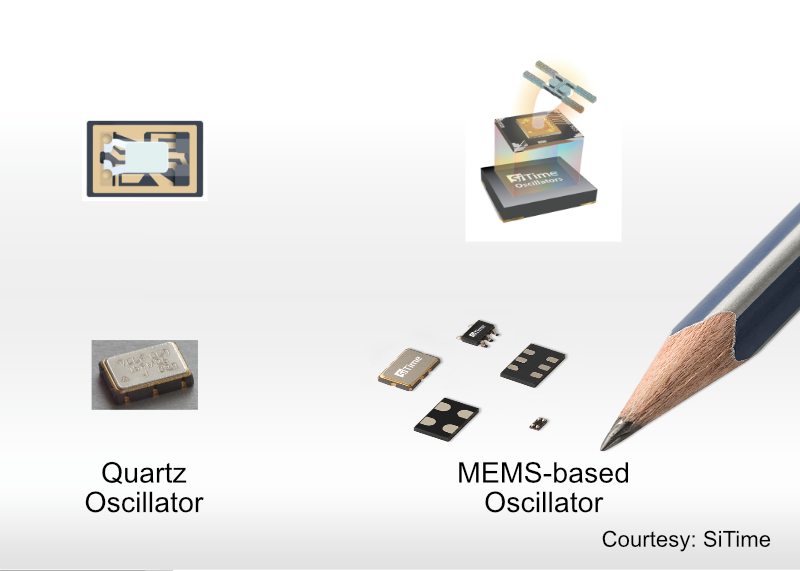Over the past few months, I’ve told the stories of various companies that have successfully launched new categories that fundamentally improved how industries operate and the world works. I thought it might be interesting to take a look at a company in the midst of launching a new category today.
Electronics can’t work without a healthy “heartbeat”. That heartbeat is in the form of clock signals that tell processors when to execute the next instruction, tell networking equipment when to send the next packet, and place highly precise timestamps on data so that it can be correctly interpreted and correlated by intelligent software. For nearly a century this heartbeat has most often been provided by a quartz crystal oscillator.
However, the Connected Intelligence revolution has placed tremendous new demands on electronics, demands that quartz crystals are struggling to meet:
– Everything is getting faster.
– Today, as connected intelligence is built into every type of product, processors and networking (with their clock sources) are increasingly expected to operate reliably in harsh environments, with wide and rapid temperature swings, constant vibrations, and regular shocks.
– Increasingly Artificial Intelligence-driven systems are making life-and-death decisions based on data collected from a variety of distributed systems.
In 2003 Aaron Partridge and Markus Lutz saw the opportunity to build a better resonator and timing oscillator using MEMS technology. They decided to name their company SiTime because they were going to build timing products entirely using silicon (Si is the scientific symbol for silicon) and semiconductor processes. Like most disruptive technologies, their first products weren’t nearly as good as the best oscillators on the market. But, while quartz-based oscillators were barely improving (constrained by the industrial-age processes around physically cutting crystals), SiTime’s products were improving much more rapidly (benefitting from the computer-age/Moore’s Law advances in semiconductor technology).
Click here to read how, over the next two decades, SiTime continued to improve MEMS-based oscillators so that they are at least at parity with quartz oscillators on all the factors that have traditionally mattered most to engineers and significantly (2x or more) outperform on the factors that matter most in the Connected Intelligence revolution: size, resilience, reliability, and stability.
Today SiTime is in the midst of launching the Precision Timing category. Click here to read how they have:
1. Defined the problem, the solution, and the category.
2. Launched the category with a “lightning strike”.
3. Are continuing to lead and expand the category.
Are you redefining your industry? Do you need help defining and launching a new category? Reach out, maybe I can help.

